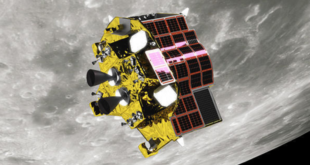
Japanese company ANA Holdings, best known for operating All Nippon Airlines, and trading house Marubeni Corporation have partnered to build a spaceport in Japan as early as 2021, according to a report in the Nikkei Asian Review.
The spaceport will be used for private space travel, such as space tourism, and will include runways that are three kilometres long for spaceplanes.
The venture will be Japan’s first spaceport, placing it very much behind the United States that has 10 commercial spaceports comprising of a mix of purpose-built facilities and converted civil and military airfields. The Japanese private partnership intends to carve out a market share in the global private spaceflight and tourism sector by building Japan’s – and Asia’s – first spaceport.
ANA Holdings and Marubeni, along with Airbus Japan, commercial satellite communications provider Sky Perfect JSAT, and real estate company Mitsui Fudosan, have created a corporate entity called Spaceport Japan as a legal vehicle for the venture. The Tokyo-based team began work on the spaceport project on 16 November 2018.
Former astronaut Naoko Yamazaki, the second Japanese woman to be sent to space, will serve as the representative director of Spaceport Japan. Major construction firms and other companies will be invited to join the consortium at a later date.
Spaceport Japan will start by selecting a site for the spaceport in cooperation with Japanese local and national government authorities.
Spaceport Japan will also take part in international conferences and professional bodies to discuss topics like safety standards. The corporate partners are also going to create a stock company to build and operate the facility once work is ready to begin. The spaceport will also probably have an adjoining training facility.
ANA Holdings has been pursuing a strategy of diversifying its business interests in space-related businesses through measures such as investment in Japanese spacecraft development startups, and more recently, by leading a consortium of Japanese companies and government agencies such as the Japanese Aerospace Exploration Agency (JAXA) in developing AVATAR X, a space exploitation venture that utilises robotics and virtual reality (VR) technologies. Sky Perfect JSAT is also pursuing a similar business strategy.
There are regulatory and policy challenges, however. A space activities law that came into force on 15 November 2018 sets out authorisation and liability frameworks for the launching and management of satellites, but it does not cover private human spaceflight in and from Japan. Japanese aviation law is unlikely to apply in the case of Spaceport Japan since the vehicles using the facility will probably use rocket engines. As a result, the Japanese government will have to come up with an authorisation process for the spaceport.
Sky Perfect JSAT “will request the preparation of appropriate laws,” said Mihoko Shintani, a lawyer affiliated with the company.
In the United States this challenge was overcome by the passage of the Commercial Space Launch Amendments Act of 2004 that allows commercial human spaceflight provided that passengers hold themselves fully responsible for any mishap. Earlier in 2018, the United Kingdom passed a similar bill in its parliament.
In addition to the 10 spaceports in the United States, spaceports are also planned for the UK, Italy, and Spain.





